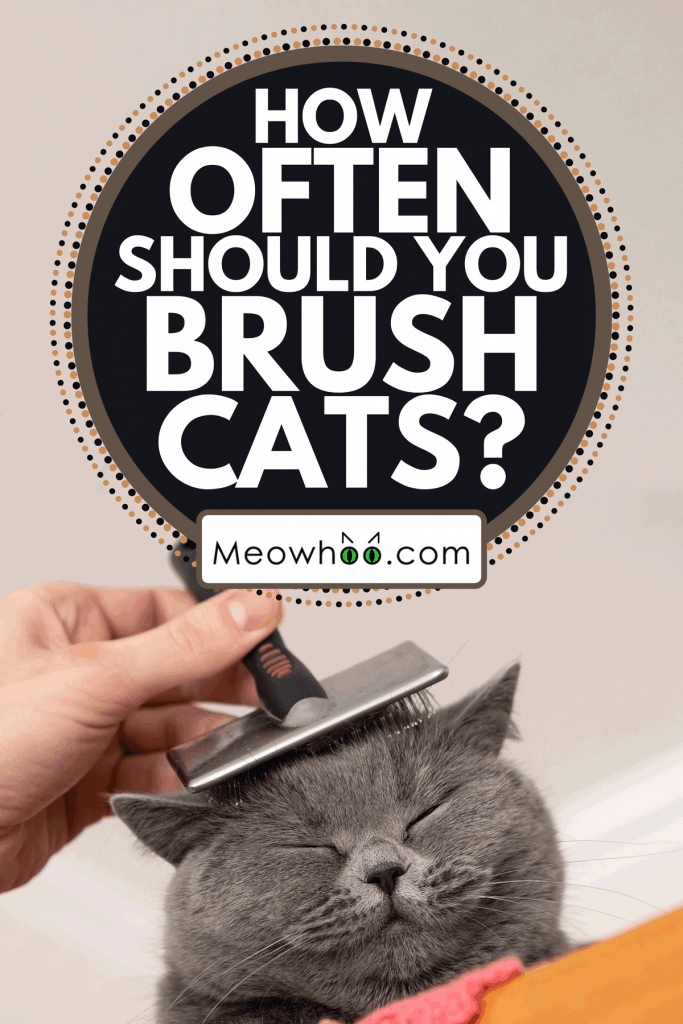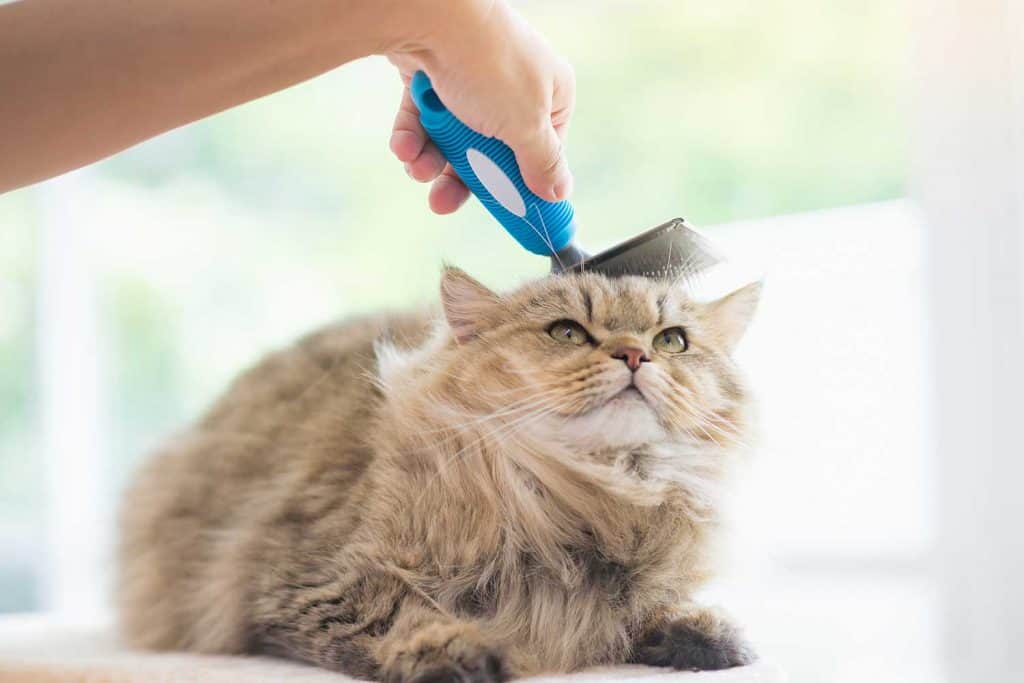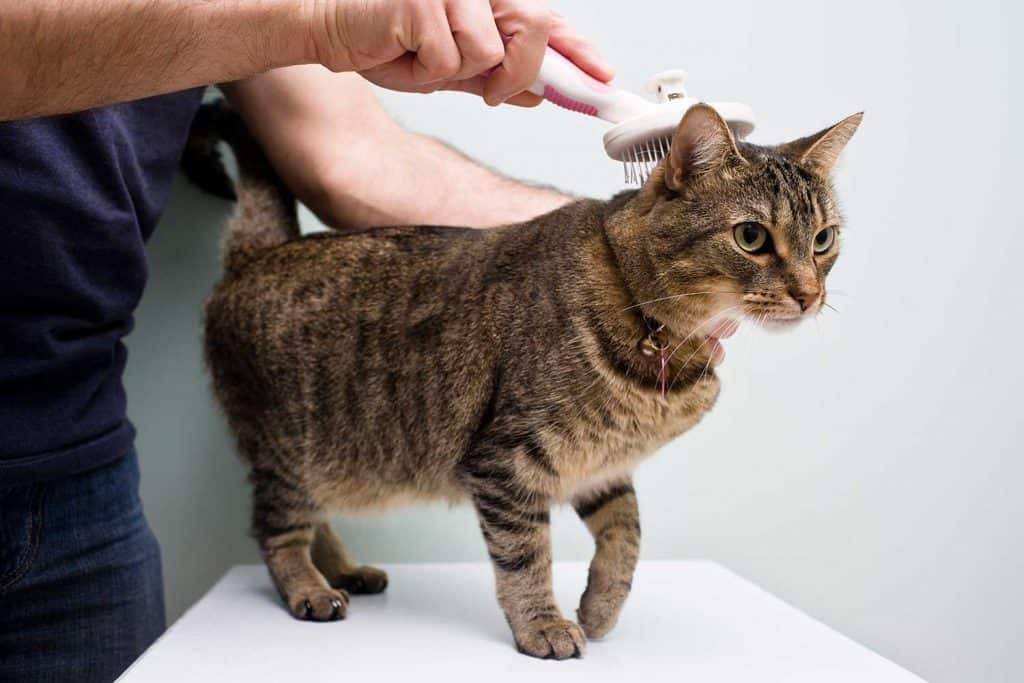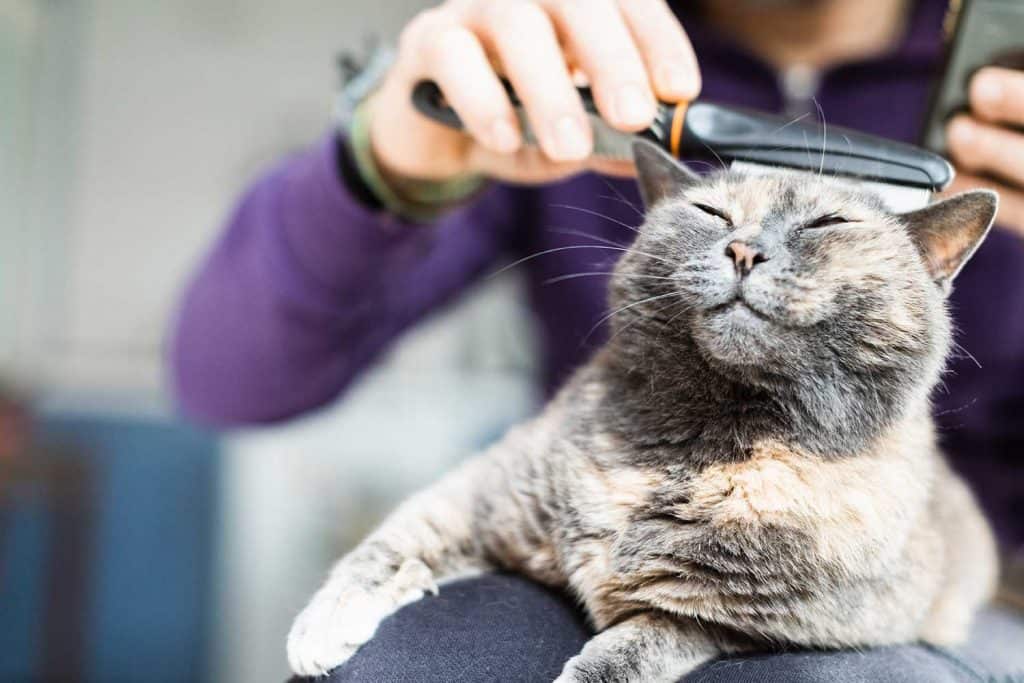While it is true that cats can groom themselves, brushing them will also help a great deal in keeping them clean and healthy. Some cats love it when you brush their fur while some cats absolutely hate it. But how often should you do it? We've turned to the pet experts for the right answer and here's what we got.
You should brush your feline's fur regularly. For those with medium to long fur, it's best to do it on a daily basis. For those with short fur, 1 to 2 times per week should be okay. Brushing will ensure that your pet's skin and fur are healthy and shiny all the time. It is also one of the best bonding activities that you can do with your pet as it establishes trust and affection between the two of you.
Continue reading because we'll tell you more about the importance of brushing your cat's fur frequently. We'll also share with you some tips on how to brush her fur properly. We'll also answer your questions about why cats love being brushed, what they are thinking when we brush their fur, and if brushing would cause them to shed more.

Can you brush your cat too much?
Brushing your furry feline's coat is an essential part of giving her proper care and grooming. When you use the right brush or comb for your cat, it'll bring lots of benefits to her overall health.

Brushing helps keep cats' fur free from mats and tangles. It removes dirt and grease that they've collected throughout the day and keeps fleas away. It also prevents hairballs from developing inside their stomachs. Brushing stimulates blood circulation as well as hair follicles. It spreads their skin's natural oils which makes their coat shiny and healthy.
Another great reason to comb your pet's fur is that it is a delightful way to bond with your furry pal. It builds trust and affection. You'll also be able to check her body as you look for wounds, bumps, or any skin abnormality before your run the brush over her coat.
Knowing all these wonderful benefits to your pet's health, you might be encouraged to brush your cat's fur daily. Well, there's actually no problem with that according to pet experts. This is true especially when you have cats with medium to long hair. If you have short-haired felines, brushing daily is already too much. You can brush their coat less frequently. Doing it 1 to 2 times a week would be fine.
Each session should just be around 5 to 10 minutes long. Make sure that she's enjoying it. Don't force her if she doesn't want to. Most of all, don't overdo it. Don't brush her hair for too long. It can cause skin irritation or bald patches on her skin.
To learn more if you can brush your cats too much, you can check out our article, Can You Over Brush A Cat?
What is the best way to brush a cat?

As mentioned earlier, there are many benefits of brushing your cat's fur. It helps keep them clean and their skin healthy among other things. It is also regarded as a great bonding opportunity between the pet and fur parent. But mind you, there is a proper way of doing this so that you'll get these results.
Here's how you should go about brushing your feline's coat according to the experts:
- Check your pet's body for any sign of mats, bumps, or wounds. Be extra careful when you encounter these conditions.
- You can put the brush next to her and see how she will react. This will let you know if it's a good time to brush her. Respond to her cues accordingly.
- Make her feel comfortable. You can have her lie on your lap or just make sure that she feels relaxed in her position.
- Make sure that you're using the right brush for your cat's hair type. A bristle brush is best for cats with short hair while a slicker brush can be used for long-haired felines.
- For short-haired cats, start brushing their head then neck, chest, belly, working your way to her tail. For those with long hair, you can start combing their legs, abdomen, all the way to up to their head. Comb their hair according to the direction of their hair growth. It's best to work in small areas at a time.
- Check for fleas and excess dirt, especially in their body parts which aren't exposed so you can clean them properly.
Remember, this process doesn't need to take too long. Your brushing routine should just take 5 to 10 minutes a day or shorter if your pet shows signs of annoyance or aggression.
Why does my cat love being brushed?

Some cats just love it when their pet parents brush their coats. According to pet experts, this is because they see it as a great opportunity to bond with their humans.
While you gently comb your felines' hair, you gain their trust that you won't hurt them. As you spend quality time with them, it builds affection not only on their part but on both ends. They also feel better and more relaxed after brushing. Thus, they are able to associate this part of grooming with a positive experience—that's why they would love to have their coats brushed again the next time around.
This is why some owners don't have any problems regarding brushing their cats' fur. But this isn't necessarily the case for all cats. So for owners whose cats don't want to have their coats combed through, they should work harder to establish these feelings of trust and affection and associate brushing with some TLC time.
What do cats think when we brush them?
Have you ever wondered what our pets are thinking when we brush their hair? As we said earlier, some cats love it when their fur parents comb their hair while some just hate it altogether. Well, each cat is different.
The general rule is to watch out for your cat's reaction when you brush her hair so you'll observe if she's enjoying it or if you're annoying her already. She'll give you cues so that you can understand what she's thinking.
When she allows you to run the brush through her coat and she remains calm and relaxed as you're doing so, it means that she loves having her coat brushed. She trusts you and can definitely feel the love. It also makes her feel better and refreshed. Your cat will also give you signs of which parts of her body she enjoys being brushed so take it from there.
However, when she displays signs of aggression, even if you feel that it's manageable for you, you need to stop brushing. You're getting her stressed. She may become more ill-mannered and can do something to hurt you. When this happens, do not punish your cat for her behavior. Instead, try again later and teach her to like brushing by forming positive associations with it.
Does brushing a cat make it shed more?
Some pet parents might be hesitant to brush their cats' hair thinking that it would make them shed more. That means more hair on their clothes, furniture, and basically, all over the house. Who wants to deal with all that, right? But this couldn't be farther from the truth.
It is recommended that you brush your cat's hair regularly to reduce her shedding. By doing so, you'll be able to remove and collect all the excess fur from her coat. This way, you're able to prevent having all those cat hair all over your body and home.
Cats shed their fur regularly. This is more evident during spring as they prepare for the warmer weather ahead. But there are other reasons why cats shed. It could be due to medical reasons, allergies, poor diet, stress, sunburn, or an infection. If you notice that your pet sheds so much, it's best to consult your vet to address any underlying issue.
Final Thoughts
If your cat will allow it, it is good to make brushing her hair a daily habit only if she has a long coat. This will help ensure that her skin and hair are healthy. This is also a good bonding activity between the two of you. The simple act of brushing her coat does wonders to her health and her well-being too!
Some elements on this page may have been created by our team using advanced AI to provide you with top-notch cat inspired ideas. Read more about our AI Content Policy.

Happy to read your article. This is unpredictable to find out about cats feeling when brushing. In the second last paragraph, you share such great information about thinking of cats behaviour. Thank you for the information